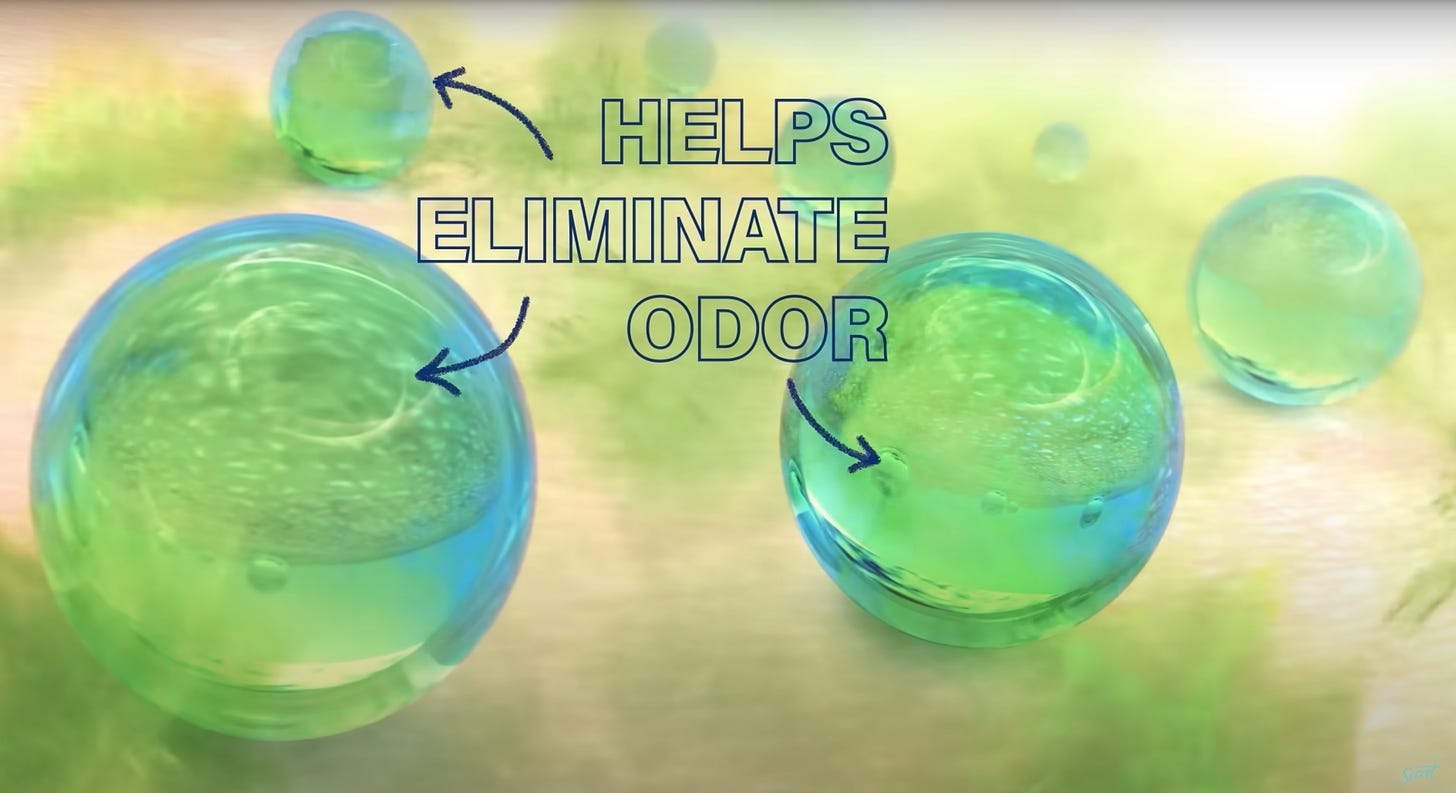“Researchers say women's friendships are face to face: They talk, cry together, share secrets. Men's friendships are side by side: We play golf. We go to football games.”
This tidbit of research from a 2010 Wall Street Journal article helps to explain the generalization of men as less emotionally available. Further research says maybe it’s because male friendships are more ‘activity-based’, and female friendships “thrive on intimacy and emotional connection".
The surrealism of a deodorant ad I recently watched puts the intimacy of women’s friendships on full display.
“Listen, your deodorant just has to work.” We’re in a women’s locker room, face to face with our bright eyed protagonist as she extolls to us, the unwashed simpletons, the importance of functioning deodorant. Given the proximity of the camera to her face, and that she’s addressing the viewer by looking directly at the camera, the commercial places us 8 inches away from a deodorant zealot, mid-sermon. There’s a cut, and she’s now a couple feet away from us, arm straight up, armpit open, explaining how to use deodorant: “Just swipe, and it lasts all day,” she guides us, her smile unwavering. It’s been 10 seconds and already I’ve learned the importance of a hardy deodorant, and how to use it. This is free to watch.
We shift from our ebullient zealot to an animation: translucent orbs entrap green fumes on a beige surface–skin? Before Secret Deodorant, the fumes lived like clouds, free to float wherever they please, towards any place they desire. Out of nowhere the orbs appear. Previously free, your mere existence now condemns you to a life of imprisonment.
From our point of view, the orbs are our guardians, sent to save us from our own noxious emissions. Deodorant arms us with orbs, the orbs protect us and those around us. Thank you deodorant!
But then the orbs, along with the imprisoned fumes, disappear. Where have you gone, noble orbs? What happens if the fumes come back? Only vigilant application of Secret will ensure new orbs respawn. Does anybody remember how to apply? I’m happy to say I know of a video on the internet that explains just that, and more.
The orbs’ journey may be over, but ours is not. We’re at a theater now. Our protagonist is meeting up with a pal to see a show. A robust social life is an important bulwark against social isolation, good for her. Before we move to the final scene, we’re told once more that Secret, her preferred brand of deodorant, works.
We finish our narrative with the protagonist handing her pal her deodorant so she can take a sniff. She isn’t carrying a bag. Where has she been holding her stick? I suppose a little pocket deodorant never hurt anybody. Her pal loves the smell. A convert! A sect’s followers do not materialize overnight; like our earth’s great redwood trees, they grow one millimeter at a time, steadfastly rooted in faith.
Surrealism, regardless of medium, produces a fantastical world through the juxtaposition of some mix of incongruous narratives, ideas, and imagery. The voyage from locker room deodorant sermon, to orb animation, to the theater-of-the-friendship-sniff qualifies nicely.
What warmed my heart the most was the finale and the solidarity displayed therein. The two friends bonding over shared excitement for deodorant reveals a closeness and trust few friendships have. Given the strength and effectiveness of Secret deodorant (the main character taught us this earlier), our heroine’s willingness to share her use of it with her friend is an admission of her own issues dealing with her wretched scent. She trusts her pal to take in this information and to focus on the scent of the deodorant itself, rather than her need for it in the first place. As you can see in the image above, her friend obliges.
It’s also possible, in a scene we didn’t bear witness to, the main character’s friend inquired about the deodorant for her own use. Also an admission of stink, albeit in the other direction. In either scenario, we have two women sharing their vulnerability with each other, entrusting the other to react compassionately as the receiver of sensitive information. The solidarity displayed by each as they support the other’s odorous issues was touching.
Perhaps the ad resonated strongly because as a man, my friendships aren’t intimate in the way the friendship portrayed on screen is. I’ve witnessed many women sharing hygiene products with one another with no compunction whatsoever. Although if push came to shove, I’d like to think I’d share a toothbrush; I’ve never offered, and no man’s ever asked me for anything more intimate than a comb.
Despite is incongruity, surrealism is still meant to resonate. If you’re accustomed to hygienic and emotional intimacy with friends, it’s possible this scene, albeit contrived to sell deodorant, does just that. Sentenced to stink, Secret deodorant isn’t for me.








If I went to the movies with someone, and they pulled out deodorant for me in the lobby, I would end the friendship on the spot.
That said, I am a man, so maybe it's different for the other sex.
Read "sent to save us" as "scent to save us", and thought, "missed opportunity". It worked too well I wouldn't have noticed the sleight of hand.